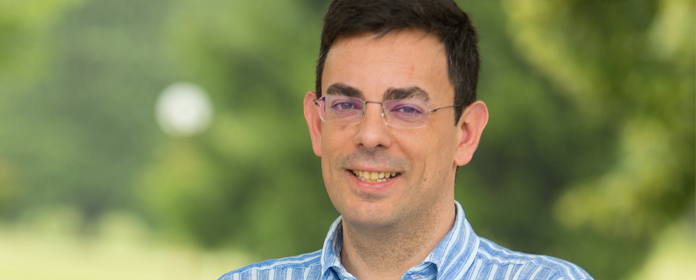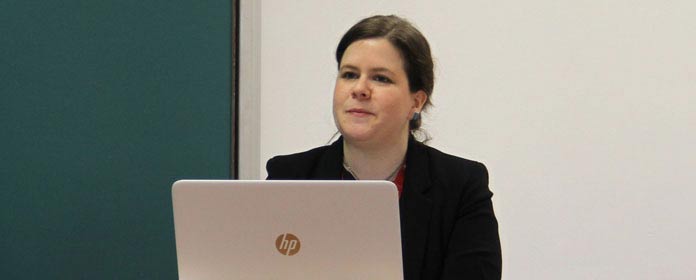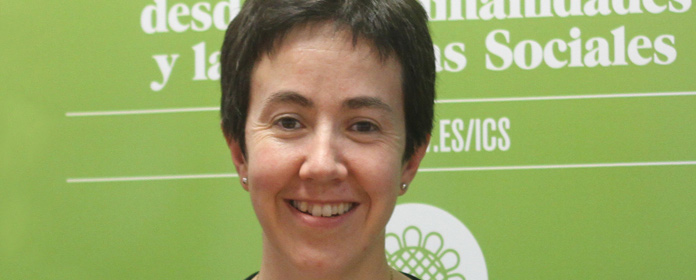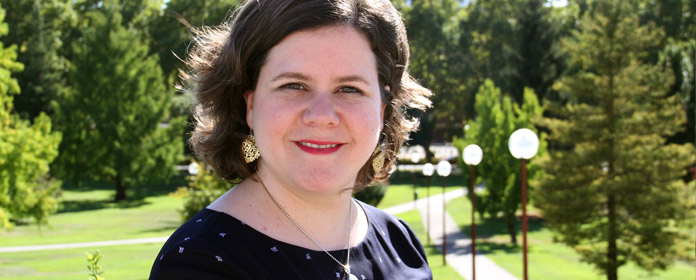"In some countries it will be impossible to know the real impact of Covid-19, especially in those with a dictatorial or non-transparent regime."
framework Demichelis, researcher of Institute for Culture and Society, analyzes the status of the Middle East in the face of the COVID-19 crisis.
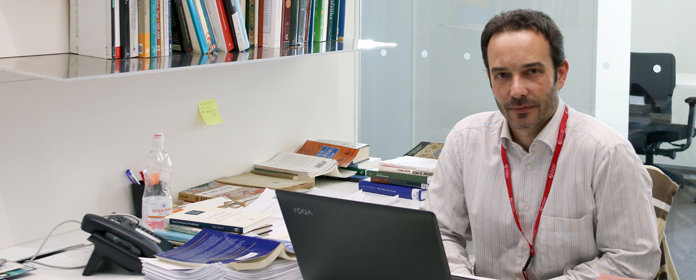
PHOTO: Isabel Solana
"In some countries it will be impossible to know the real incidence of the virus because there is no real data , especially in countries with a dictatorial or non-transparent regime". This has been assured by framework Demichelis, researcher of the project 'Religion and Civil Society' of the Institute for Culture and Society (ICS) of the University of Navarra, expert in Islamic programs of study and History of the Middle East.
According to the expert, one of the biggest problems of the coronavirus crisis, in addition to the human losses and the economic impact, is the lack of information. "This is happening both in the West and, above all, in Middle Eastern countries."
For Demichelis, this happens because the States want to show a greater strength than they have, they want to hide their weaknesses or avoid demonstrations or insurrections by the population who, knowing the real data , could turn against the government. "In countries like Iran, Saudi Arabia, China or Pakistan very little comes to light, we are not going to know the real numbers of dead," he pointed out. However, he added that even in democratic countries, such as England, those affected in old people's homes do not appear in the figures provided by the state.
In his opinion, this poses a risk, since data is offered as if it were a competition. He suggested that, both in the West and in the East, most countries are more focused on offering an analysis of their own problems than on protecting themselves properly from the virus.
"As in war, the truth in the pandemic will depend on the country and its research capacity, its population density and the tension of the problem," he said, although he insisted that this crisis is not comparable to a war because of the absolute level of material and moral destruction of the latter.
Pandemic in conflict areasIf it is difficult to know the real information on the pandemic in countries with a certain stability, it will be impossible to see the real incidence in places in conflict. "At the moment, the world's attention is focused on Covid-19 and there are regions that are not being talked about, such as Libya, Yemen, Syria, Somalia or the Congo," he pointed out. Although the risk of contagion in these countries is lower - due to the lack of migration -, the journalists are at agreement that arms and basic necessities continue to arrive. Demichelis considered that this could be a possible focus since, among those carrying the weapons and the humanitarian staff , an infected person could be found.
For the researcher, this status is aggravated in the case of refugee camps or villages bordering conflict zones, such as the Samos camp in Greece or villages on the border of Turkey and Syria. On the one hand, they have no means to block the pandemic. "If there are no sanitary materials, such as masks, for industrialized countries, much less are they going to be made for refugees," he criticized. In addition, there are very few international health workers who can work in the refugee camps.
Likewise, migrants are in poorer health, so the virus can affect them more and with greater mortality regardless of their age. According to the expert, these people will only become a priority when the country hosting them has recovered from the health crisis.
The holy month of RamadanFor Islamic and Middle Eastern countries this juncture takes place at the framework of Ramadan, which began on April 24. During this religious period the faithful gather in mosques to pray and celebrate the end of the fast each night with meals with family and friends. Activities now prohibited or not recommended in most countries.
Compared to the Christian Holy Week, the Islamic holy month may pose greater risks to the population in the eyes of researcher. On the one hand, Catholic churches remained closed during this period, however, it is not possible to close all mosques as each Islamic country and region has its own religious authority. However, the most important sheikhs and imams in most countries have emphasized the possibility of not going to the mosque and praying from home. In fact, the expert pointed out that, for both Muslims and Catholics, the first religious community is the family, and this could be a time to highlight its value.
Also, the length of Ramadan, a lunar month, means that the risk of infection and incubation is higher and lasts longer. "The religious push must be careful because some regions do not have a health system strong enough to cope with the coronavirus crisis," Demichelis said.
Thus, the issue death toll may double at the end of Ramadan, especially in countries with weak health systems. One example is Pakistan, where religious groups have emerged against the quarantine proposal by the government. They consider that faith is the only thing that can save them and, therefore, they must go to the mosque to pray. status that, for researcher, has also been experienced in North America with the Evangelicals or in Israel with some Orthodox.
The bans on going to places of prayer place a limit on religious expression but other activities, such as working or seeing the family, have also been limited. "It should be a common priority and staff at the same time because, after all, it is one's own family that can be infected in the first place if one is infected in church or mosque," he concluded.

